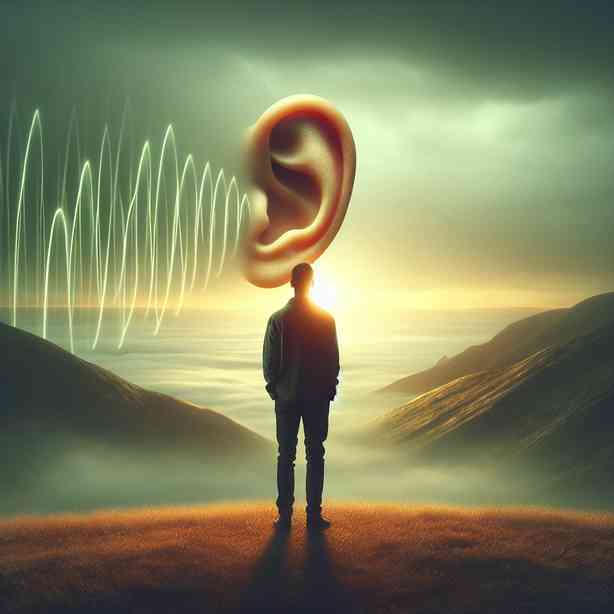
The human experience is rich and complex, weaving together various threads of perception, emotion, and intuition that often guide our decisions and actions in ways we may not fully understand. Among these threads exists a unique phenomenon, likened to a “cue” that only certain individuals seem attuned to. This subtle and often elusive signal can significantly impact our lives, shaping our choices, relationships, and overall outlook. To navigate this intriguing concept, it is essential to delve into the nature of this cue, its significance, and how it can be cultivated for personal growth and well-being.
At its core, the cue that only you could hear may be described as an instinctual guide, an internal voice that emerges from a deep well of personal experiences, knowledge, and emotions. This internal signal functions much like an inner compass, directing individuals toward what feels right and resonant in specific moments. For many, this cue manifests as a gut feeling or a flash of intuition, often arising in situations that demand quick decision-making or when one is faced with uncertainty. Understanding and acknowledging the presence of this cue is crucial, as it can lead to more authentic living and decision-making aligned with one’s true self.
To fully appreciate how this cue operates, it is valuable to consider the psychological and emotional dimensions involved. Our senses constantly absorb information from the environment, which our brains process subconsciously. This continuous stream of data can contribute to an intuitive awareness of potential outcomes, risks, and rewards related to various choices. When individuals learn to listen to this inner voice, they tap into a reservoir of subconscious knowledge created from past experiences, cultural influences, and learned behaviors. Thus, the cue becomes not just a mere whisper but an articulate guide derived from the synthesis of life lived.
Cultivating an awareness of this inner cue involves deliberate practices aimed at enhancing self-reflection and mindfulness. When individuals engage in reflective practices, such as journaling or meditation, they create space to deepen their understanding of their thoughts and feelings. This process encourages a listening ear toward one’s internal dialogue, making it easier to recognize the cues that arise in various situations. Moreover, the practice of mindfulness trains the mind to be present, allowing individuals to discern subtle signals that may otherwise be drowned out by the noise of daily life. As a result, this enriched self-awareness can amplify one’s ability to navigate complex decisions with greater confidence and clarity.
The significance of this cue extends beyond personal decision-making; it can profoundly affect relationships. Building connections with others often relies on emotional intelligence, where the ability to perceive and respond to nonverbal cues carries substantial weight. Individuals who attune themselves to their inner cues are typically better equipped to empathize with others, understanding unspoken emotions and dynamics. This heightened sensitivity can enhance communication, leading to stronger and more authentic relationships. In this sense, the cue that only you could hear becomes a bridge, facilitating deeper connections with those around you.
As we explore practical applications for harnessing this internal cue, it is essential to recognize the role of intuition in creativity and innovation. Many artists, writers, and innovators often describe their creative process as being guided by an inner voice or instinct. This intuitive perception fuels inspiration, helping individuals take bold risks in their work and explore uncharted territories. In fostering an environment that encourages creative expression, one can unlock and amplify these innate cues, allowing for a flow of ideas that might not have emerged through conventional logic alone.
However, it is important to acknowledge that while intuition can be a powerful ally, it is not infallible. Relying solely on internal cues without critical thinking and logical reasoning can lead to impulsive decisions that may not always yield positive outcomes. Thus, striking a balance between intuition and rational analysis is imperative. Embracing a holistic approach that incorporates both intuition and reason empowers individuals to make well-rounded choices, amplifying the potential of the cues they receive.
Moreover, societal and cultural factors can influence how individuals perceive and respond to their inner cues. In some contexts, intuition and emotional insight are celebrated and encouraged, while in other settings, they may be dismissed in favor of empirical reasoning. Recognizing these cultural dynamics is crucial in understanding why some individuals more readily connect with their inner cues than others. Embracing diversity in thought and experience can enrich the collective understanding of intuitive cues, fostering an environment where various perspectives are valued and explored.
In conclusion, the cue that only you could hear serves as a vital aspect of human existence, shaped by a complex interplay of personal experiences and emotional awareness. By cultivating an understanding of this inner compass, individuals can enhance their capacity for self-reflection, improve their relationships, and foster creativity. Listening to this subtle, yet powerful, cue allows individuals to navigate life’s challenges with confidence, authenticity, and purpose. While intuition serves as an indispensable guide, remembering the importance of balanced decision-making between intuition and rational thought is key to living a fulfilling and meaningful life. Ultimately, embracing and trusting the cues we each possess can lead not only to personal growth but to collective harmony, as we learn to appreciate the intricate tapestry of human experience.


